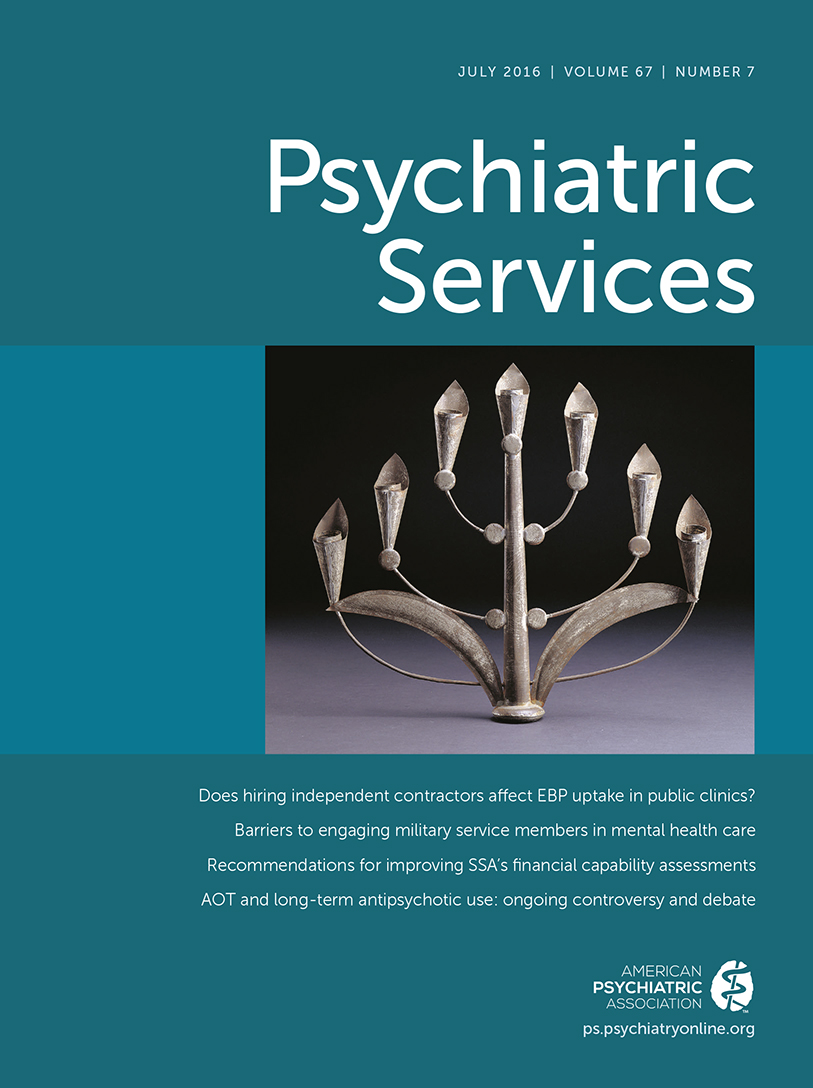Glucose Testing for Adults Receiving Medicaid and Antipsychotics: A Population-Based Prescriber Survey on Behaviors, Attitudes, and Barriers
Abstract
Objective:
This study aimed to assess provider attitudes about glucose testing for adults prescribed second-generation antipsychotic medication.
Methods:
Missouri Medicaid prescribers of antipsychotics in 2011 were surveyed (N=924, 25% response rate). Pearson’s chi square test was used to compare responses between prescriber specialty setting. Multivariable log-binomial regression evaluated the association of factors hypothesized as barriers to screening.
Results:
Prescribers in community mental health centers were more likely than primary care providers to report that they would definitely order baseline testing (57% versus 39%, p<.001) and were greater promoters of screening to colleagues (76% versus 49%, p<.001). The strongest predictor of screening intent was disagreeing strongly that “metabolic screening is not a priority for me or my organization” (94% more likely to screen at drug initiation and 74% more likely at annual evaluation, both p<.001).
Conclusions:
Establishing organizational priority across all treatment settings is important for achieving population-based diabetes screening goals for all Medicaid patients receiving antipsychotics.



